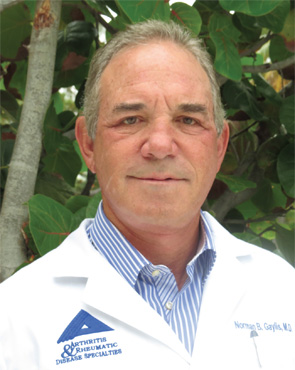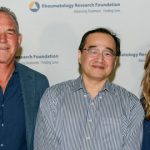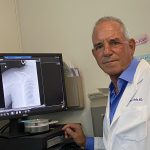
The Rheumatology Research Foundation has received a $1 million donation from practicing rheumatologist Norman B. Gaylis, MD, to fund physician-driven medical research through the establishment of the Norman B. Gaylis, MD Research Award for Rheumatologists in Community Practice. This award will support research ideas from practicing rheumatologists.
Dr. Gaylis has been practicing medicine in the greater Miami area for more than 34 years. He is also an active member of the Foundation and has served as an ambassador for the Campaign Leadership Council. He believes strongly in the benefits of clinicians conducting research and the importance of making an investment in the field of rheumatology.
The award will be used to support rheumatologists in community-based practices who, in addition to taking care of patients, want to test their own observations and ideas through innovative research. He says, “I created this award to benefit patients who suffer from rheumatic diseases. I feel very strongly that practicing rheumatologists have day-to-day exposure and relationships with patients that allow them to notice trends and nuances that regular researchers might not have, yet they usually don’t have access to funding.”

Dr. Gaylis says his desire to create the award was born out of his own experiences. “In my career, I have been both fortunate and frustrated: fortunate because I’ve been in practice for nearly 40 years; frustrated because I struggled to get support for ideas I had—not because they weren’t worthwhile, but because funding wasn’t available. So many rheumatologists deserve that opportunity, and I’m trying to stimulate new thought and creativity and attract some of the unsung heroes in rheumatology.”
The Foundation will start accepting applications for the Norman B. Gaylis, MD Research Award for Rheumatologists in Community Practice next year. The first round of funding for research will be given out in 2017.
Dr. Gaylis hopes his investment serves as a message to colleagues to “give back to what’s made you who you are.” With this additional research funding, he hopes to influence rheumatology’s future and, ultimately, improve the lives of patients around the world.



